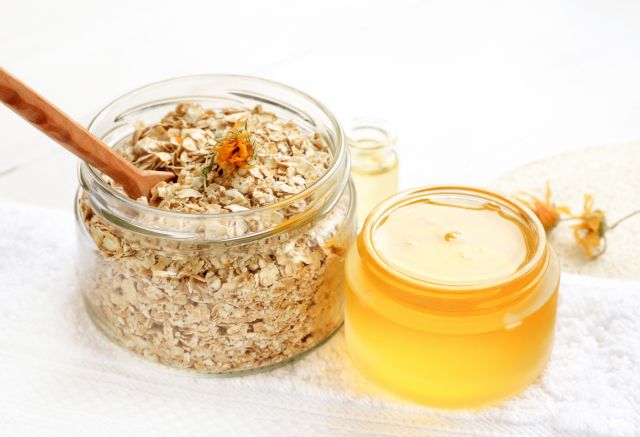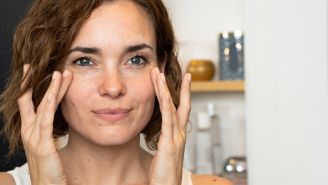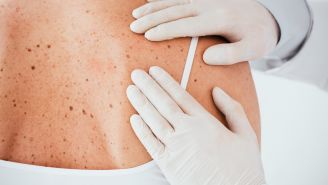Updated on March 15, 2024.
You might already know that oatmeal is a healthy food, packed with fiber. In fact, that fiber can help lower cholesterol levels by absorbing excess cholesterol and helping it pass out of the body.
But did you also know that oatmeal can offer benefits when applied to directly to your skin? Oatmeal can help whisks away dead skin cells, ease irritation, and leave a soft, moist glow behind.
Oats as skin care through history
While this may be news to you, oatmeal has long been a staple for skin care—dating back even to ancient times. Its skin-soothing properties were known as early as 2,000 B.C., and to this day, the U.S. Food and Drug Administration (FDA) cites it as effective for relieving dryness and inflammation, including insect stings, rashes, and eczema.
That's why finely powdered oatmeal (also known as "colloidal" oatmeal) is sifted into soothing body soaks, moisturizers, and soaps. Pulverizing the oats into powder makes it easier to disperse their healing goodness. And having the oats in powdered form keeps them from collecting in the bottom of the tub.
"There are four reasons why your skin adores oatmeal," explains New York City dermatologist Amy Wechsler, MD. These include:
They can help ease dryness. Oats contain polysaccharides, which become gelatinous in water and leave a fine protective film on the skin, preventing dull, flaky dryness.
They have moisturizing properties. Oats are full of healthy, lubricating fats.
They can enhance the skin's defense. The proteins in oatmeal help maintain the skin's natural barrier function, which helps ensure that the world outside the skin stays out, and what's inside the skin stays in.
They can help clean the skin's pores. Oats are filled with natural cleansers (called saponins) that gently remove dirt and oil from the pores.
The skin doctor's smoothing, soothing oatmeal mask
To enjoy all of these benefits, Dr. Wechsler suggests treating your skin to a colloidal oatmeal mask every week or two. Here's her recipe. The best news is that these ingredients may already be in your kitchen.
- 2 tablespoons old-fashioned oats
- 2 tablespoons hot water
- 1/2 tablespoon honey
1. Put the oats into a clean herb or coffee grinder on the finest setting, and process into powder.
2. Pour into a small bowl and stir in hot water and honey. Let stand for 5 minutes.
3. Wash face with warm water. While skin is still damp, massage paste onto face, circling around eyes and mouth. Leave on for 10 minutes.
4. Remove with tepid water and a washcloth. Apply your favorite moisturizer to seal in the benefits and set the glow.
Oatmeal for breakfast has benefits, too
Don't stop eating oats just because you've transformed them into a beauty treatment! They're hard to beat as a source of health-protective soluble fiber, the kind that helps remove cholesterol from the body.






